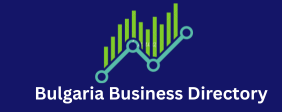A/B testing is the practice of comparing Testing for Continuous two versions of a webpage, ad, or email to determine which performs better. It’s a fundamental technique for optimizing lead generation strategies. By testing headlines, calls-to-action, images, form lengths, and offers, marketers can learn what resonates most with their audience. Continuous testing ensures that campaigns evolve based on real user behavior, not assumptions. Over time, even small improvements in conversion rates can lead to significant gains. A/B testing should be part of a larger strategy of iteration and refinement, using data to guide decisions and maximize lead generation efficiency.
Offline Lead Testing for Continuous Generation Techniques
While digital dominates, offline methods remain shop powerful for certain audiences. Networking events, trade shows, seminars, and direct mail still generate qualified leads. These approaches allow for personal interaction, building trust and rapport more quickly than digital touchpoints alone. Collecting business cards, offering printed brochures with QR codes, or hosting workshops can bring in leads with high purchase intent. Combining offline tactics with online tools—such as uploading contact data to a CRM for follow-up—creates a holistic approach. For businesses in B2B or local markets, offline lead generation can complement digital efforts and increase overall outreach effectiveness.
Data Privacy and Ethical Considerations
With increasing scrutiny on data privacy, ethical effective content marketing for leads lead generation practices are essential. Businesses must comply with regulations such as GDPR, CCPA, and other local laws that govern how user data is collected and stored. Transparency about data usage, providing opt-in options, and allowing users to manage their preferences builds trust.
Ethical marketing ensures that leads are obtained bermuda businesses directory with Testing for Continuous consent and respect. Avoiding deceptive tactics or spammy messaging protects your reputation and reduces legal risk. Prioritizing privacy and ethics isn’t just about compliance—it demonstrates your brand’s commitment to responsible business practices and long-term customer relationships.

